Mailbox app
 jenxi.com
jenxi.com Vision alchemist crafting strategic innovation & AI adoption. Bridging startups to China's ecosystem advantage. Building a cyberbrain. Registered pharmacist × Brand strategist × Storyteller
The Mailbox app has generated a lot of hype among users and potential users. New users are added to a growing waiting list as the developers try to keep up with the demand for the app.
This might give you a perspective of how popular this new email app is: there were 670,000 people in front of me when I joined the waiting list and after I gained access, there were still 700,000 people on the list.
Those of you who follow technology news would probably have heard of the Mailbox app. The reviews that I have come across ranged from positive to outright hailing it as a revolutionary app.
When I first heard of the app, I downloaded it immediately. I am always eager to find new ways to increase my productivity. Apps such as Evernote and Pocket have made immense impact on my content consumption and creative processes. However, checking email was an area where I found myself spending too much time on.
One of my daily tasks is to achieve Inbox Zero. For the uninitiated, that means reducing the number of unread emails in your inbox to zero. Mailbox is an app that wants you to get to Inbox Zero. I had to try it.
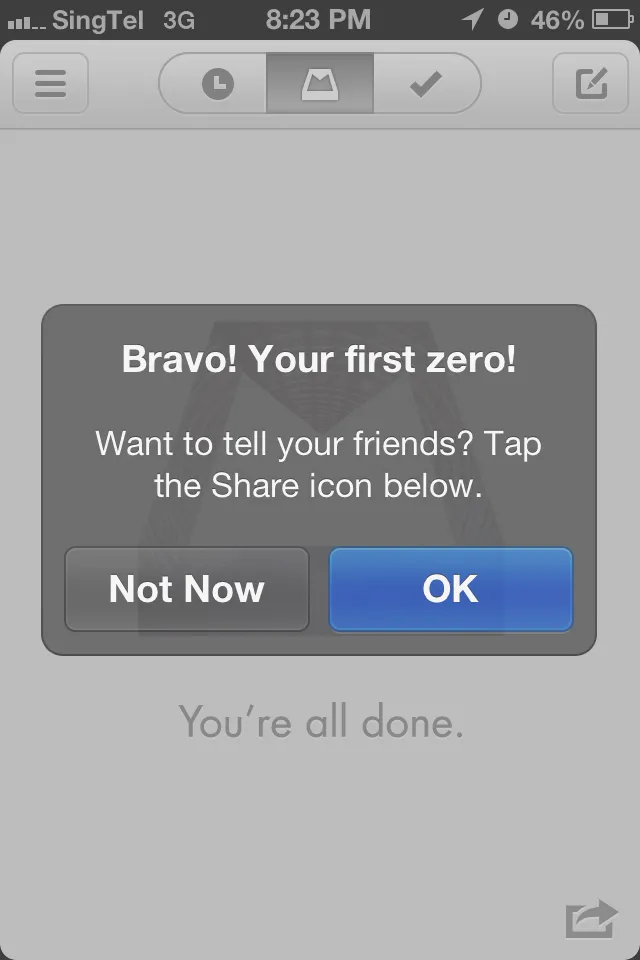
I was an early adopter of Gmail, registering my first account back in 2004. Since then, it has become an integral part of my life. I get a reasonable amount of email every day, of which probably a quarter require my attention. I have managed to filter out the noise and concentrate on the important emails using Gmail add-ons from the Google Lab such as Priority Inbox and Smart Labels. On top of that, I have my own filters to label the various emails to help me block out even more noise as well as to identify emails that I can choose to leave aside for the time being.
Despite all these measures, I still had to go through 50 emails daily. Smart Labels reduced my inbox from around 200 emails a day to 50. That is an achievement but even then, checking emails still took up more time than I liked.
This is where Mailbox came into the picture.
Mailbox
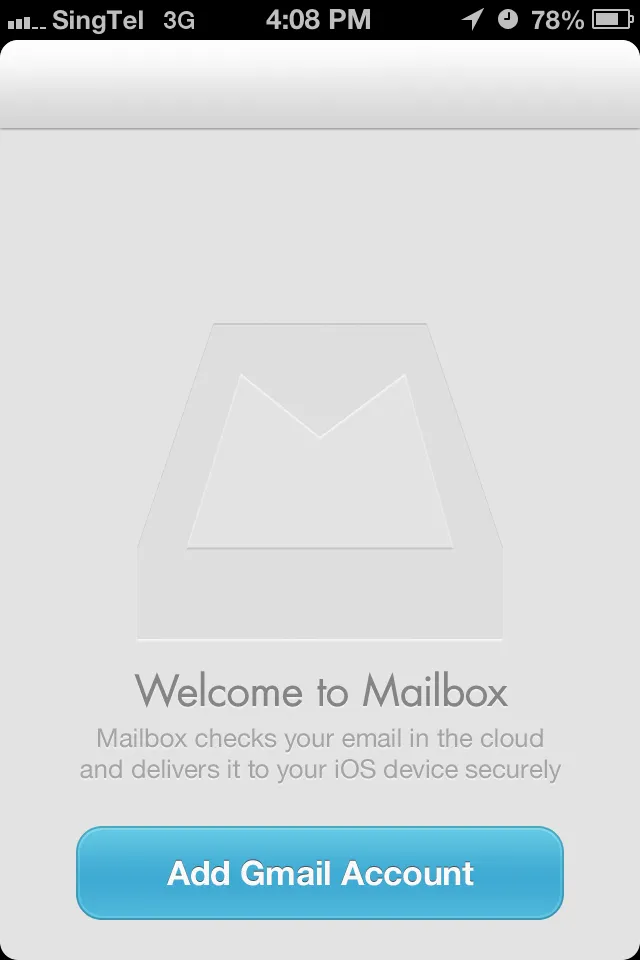
Mailbox does not introduce something radical to the way you go through your emails. Rather, it creates a workflow that helps you to focus on the important things. This is why some people dislike Mailbox. People who are already very used to their own workflow in managing their emails or had complex filtering systems in place tend to be less willing to conform to the workflow touted by Mailbox.
You have to be willing to follow Mailbox’s workflow or at least incorporate it into your workflow to enjoy the benefits of the app.
It is a very simple concept. When messages come into your email account, you can choose to list it, set it aside, archive it or delete it. There are no new functions in this workflow. It takes existing features of Gmail and make it into a very powerful workflow.
Most importantly, Mailbox makes the four options very simple to execute. You need multiple steps to complete the same action in Gmail. With Mailbox, it is as easy as a swipe of your finger.
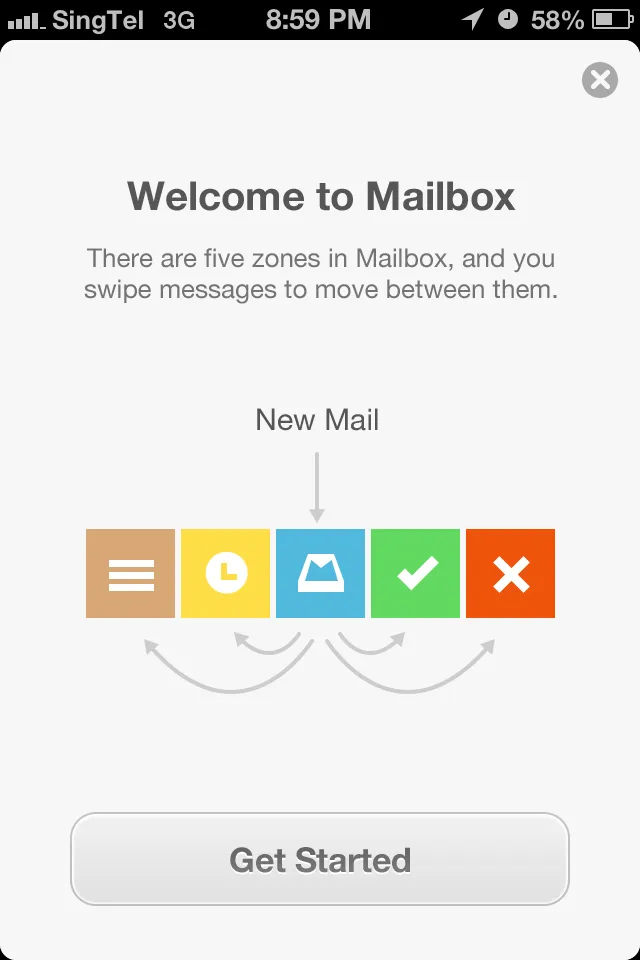
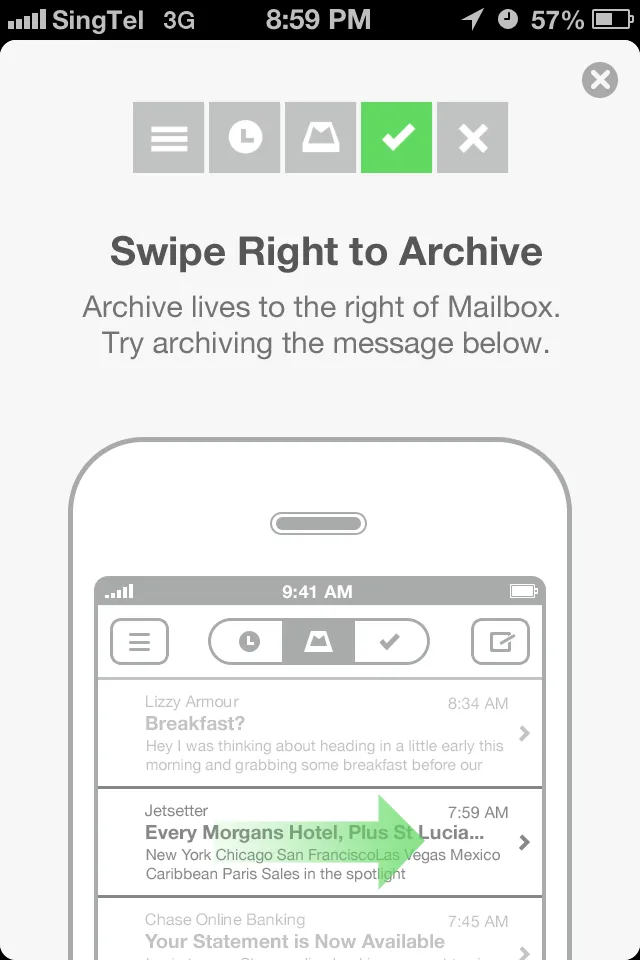
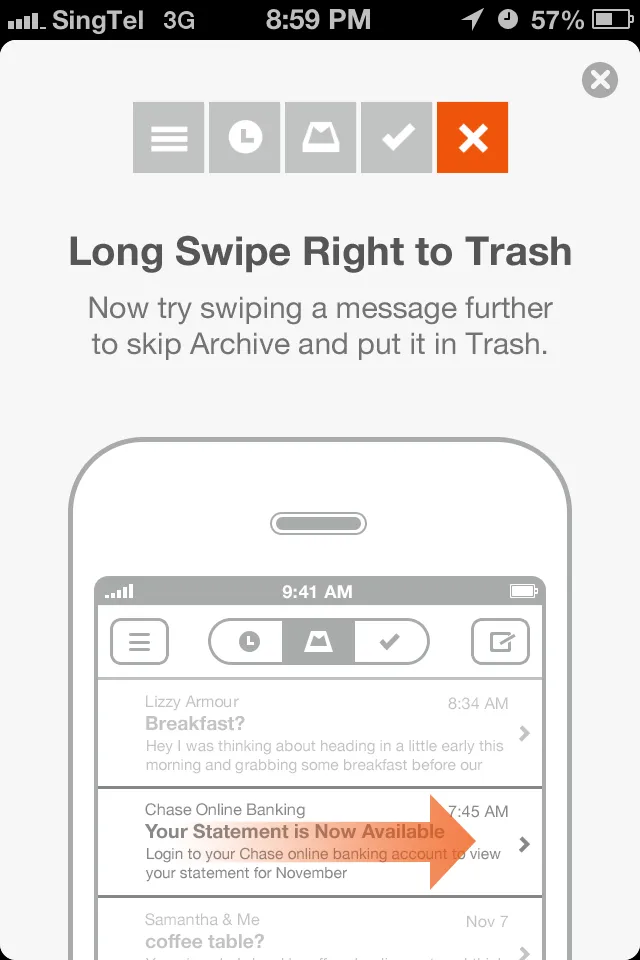
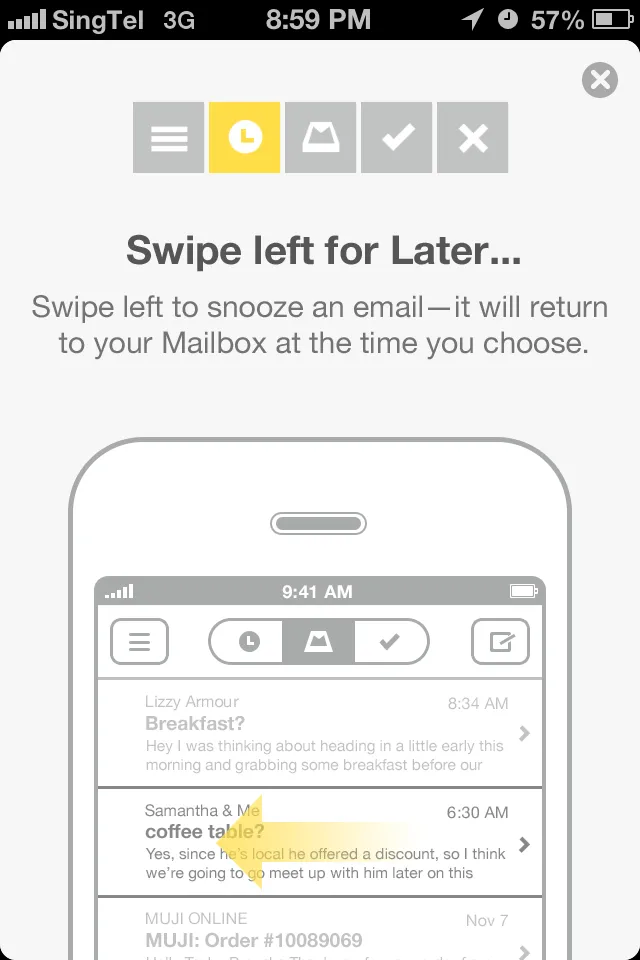
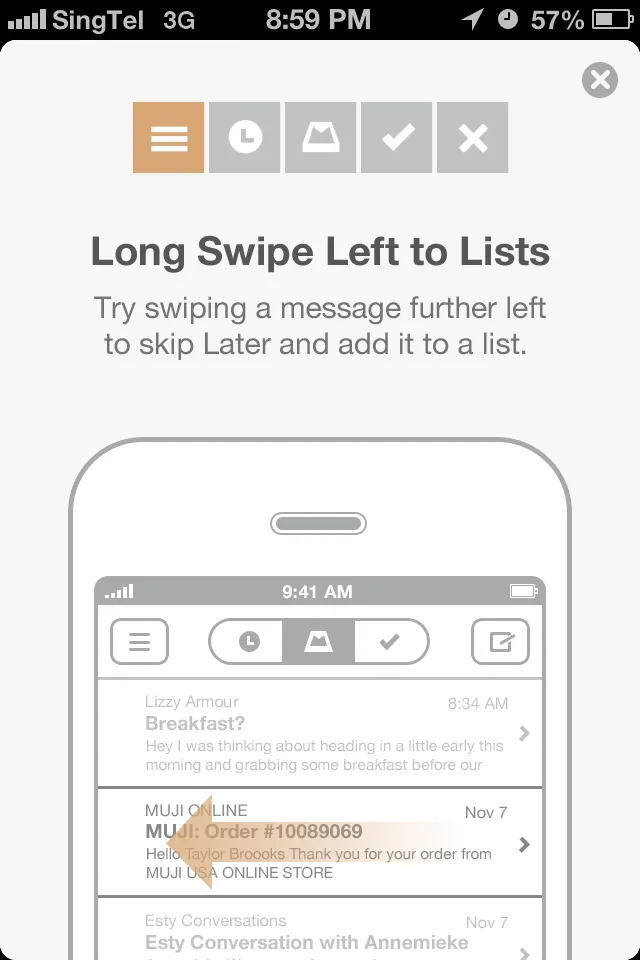
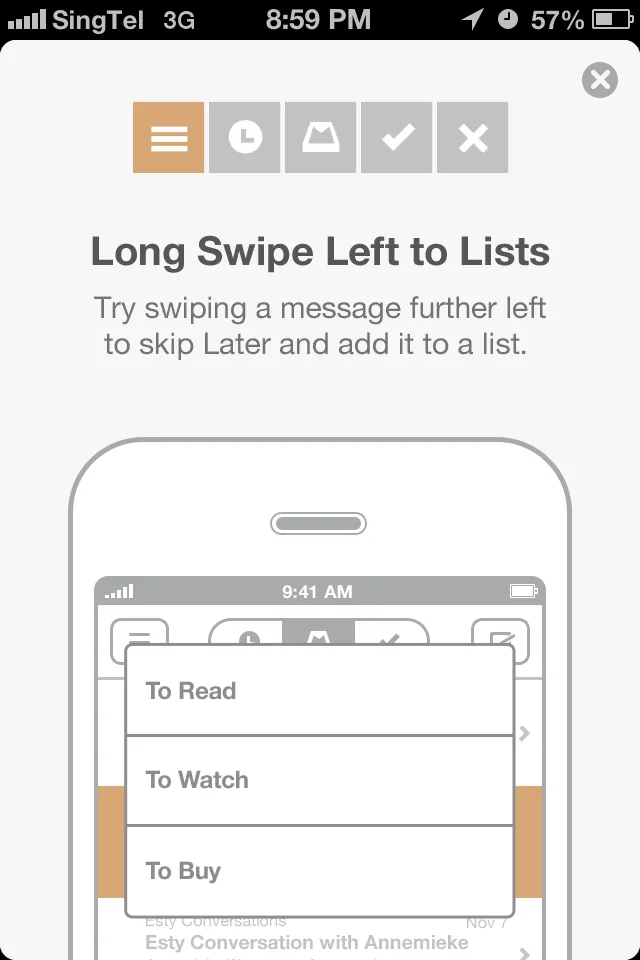
The left swipes are not exactly single steps since you need to choose the time for the reminder and the list that you want to add to. But it is a lot more intuitive than other mail apps that I have used.
I find myself breezing through my inbox as I archive emails that I have read, delete the ones that I have no need for, and setting emails aside for another time. I am able to easily achieve Inbox Zero within a few minutes of going through my emails when I wake up.
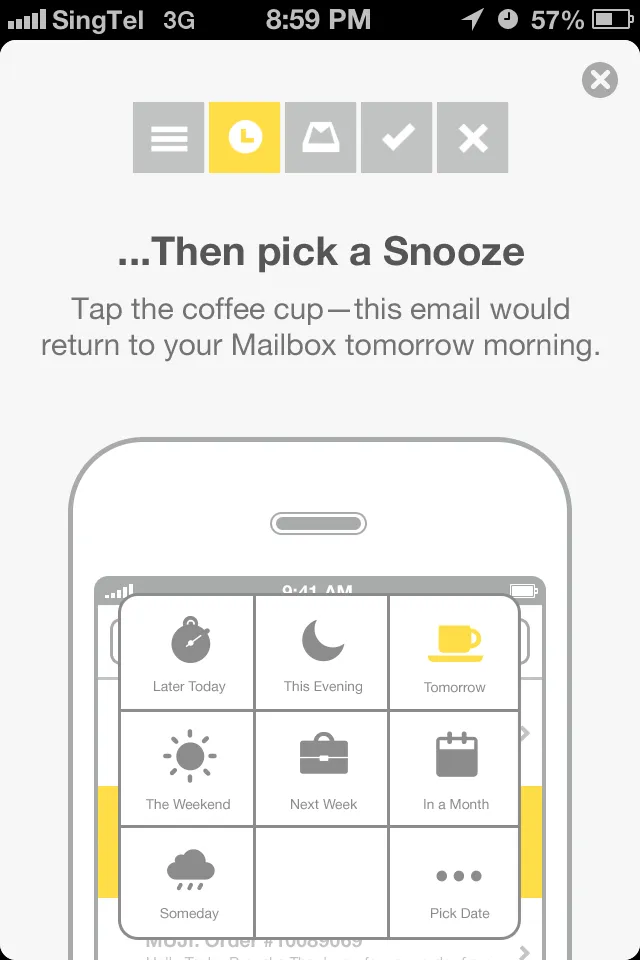
Choose when you want to be reminded about this email.
Inbox Zero
Mailbox wants you to achieve Inbox Zero. And when you do, it rewards you with a featured image pulled from Instagram. Users get a beautiful photo for their efforts and the photographer gets exposure.
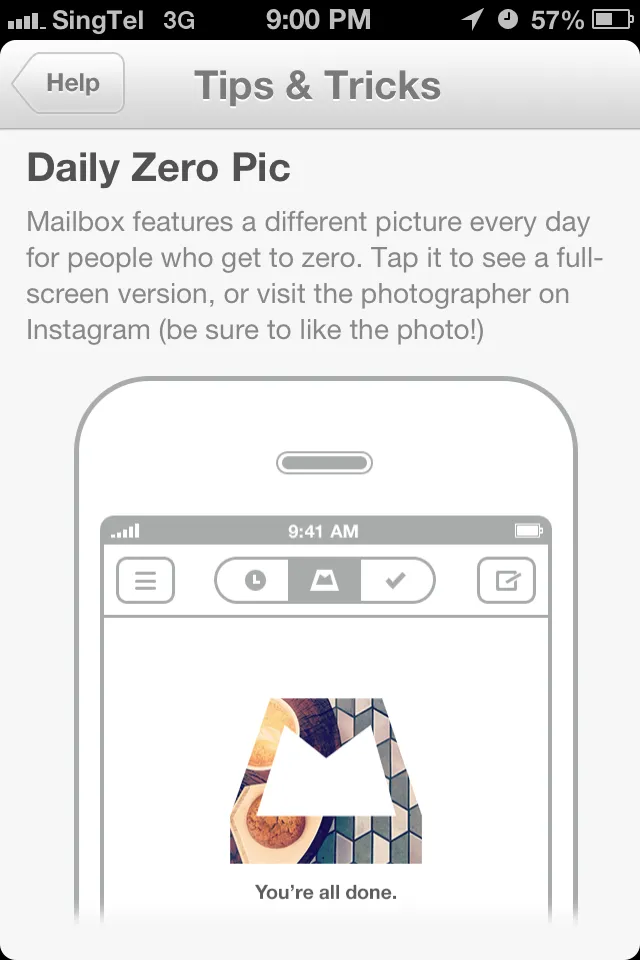
Of course, the onus is still on you to take time to sit down and go through your reading list, and to take action when the reminder alert pops up. The app has done its part and the rest is up to you.
If you work with email daily and have not downloaded Mailbox, I highly recommend you to do so. Be flexible and experiment with a new workflow. It might just save you from the endless email clutter.